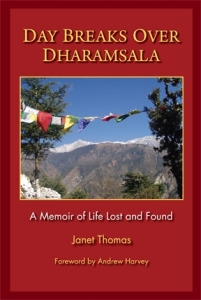In 2009, when Nick Bryant’s book, The Franklin Scandal: A Story of Powerbrokers, Child Abuse and Betrayal came out, I immediately ordered a copy. When it arrived, more than 600 pages of it, I dove in with excited anticipation which all too quickly became a slow slog. Its complexity, its journalistic imperative, and its fastidious attention to detail—all the things that name it authentic and critically important—stopped me in my tracks. My survivor mind couldn’t cope with its objectivity, its compelling and sequential truth. My cognitive allegiance was to the survivors and the inchoate and inarticulate truth of their struggle. Bryant was writing about the legal logistics of horrendous crimes against children and the resulting cover-up. In the Franklin Scandal he details the real-time unfolding of the attempts, heroic and dogged on the parts of those who tried to bring justice to light, as well as on the parts of those doing everything possible to thwart justice and destroy survivors. It is a legal playbook that illuminates shocking miscarriages of justice and callous and conniving cover-up. But I couldn’t read it. I couldn’t track it. Continue reading
November 2014
Disinformation and DID: the Politics of Memory
This article was originally published on DIDiva.com and other sites, but we thought it important enough to republish here in our first issue. -Eds.
This essay is not meant to be comprehensive. Instead it is the attempt to connect some dots that are rarely considered or discussed—hopefully providing a new way to view the politics of memory and of DID in particular. It is designed to generate discussion and suggest areas of further study. There is an old saying: “Don’t bite my finger—look where I am pointing.”
Continue reading
Over but the Shouting
Thirty years ago, when I was enrolled in a Women’s Studies course, we devised a little experiment/study. We (all women) sat on a low wall adjacent to a busy sidewalk on campus and cat-called men as they walked by. Further down the block, one of our classmates stopped the victims and asked them to fill out a questionnaire about the experience. The results were inconclusive, not surprisingly, given that it was such an anomalous event. Most of them expressed shock or surprise more than anything else. Street harassment has long been a topic of study and outrage for feminists, but if my memory is at all to be trusted, it’s never gained this level of attention.
The video below went viral this past week. It generated a great deal of commentary, from NPR, to blogs, tweets, and points in between. I read some valid criticisms of the piece itself, but I also saw a lot of confusion, predictably over what, exactly, constitutes harassment. Continue reading
Who We Are: Janet Thomas
For this first issue, as a means to further introduce you to Borne, we thought to offer you selections of our own work. -Eds.
Janet Thomas is an author, editor, playwright, and teacher. Over the last few years, she’s traveled to India to teach the art of memoir writing. Below is an excerpt of her 2011 Nautilus Award winning book.
 Day Breaks Over Dharamsala, A Memoir of Life Lost and Found
Day Breaks Over Dharamsala, A Memoir of Life Lost and Found
Chapter 10
For more than twenty years I have wrestled with, and been wrestled by, the truth. When I collapsed in the middle of my kitchen between Christmas and New Year’s, 1984, I had no idea that I was falling off the edge of my world. I had no idea that the inner framework of my life was imploding, and that the rest of my life would become a psychological reconstruction zone. The moment was visceral and paralyzing. I could no longer make my self up. But it would be years before I could even begin to describe what happened to me. And the way in to my truth was through lies. Continue reading
Who We Are: Lynn Schirmer
For this first issue, as a means to further introduce you to Borne, we thought to offer you selections of our own work. -Eds.
The works included here are typical, drawing is my primary medium, but I also paint and make sculpture. Continue reading













